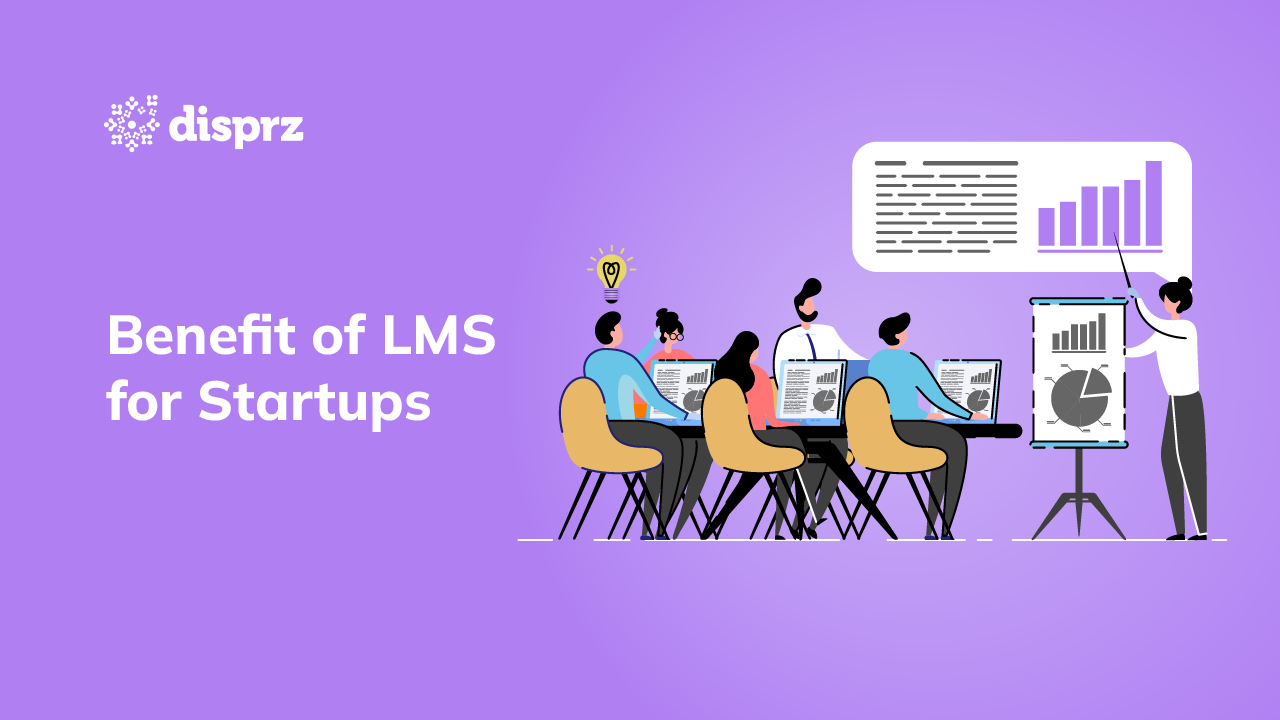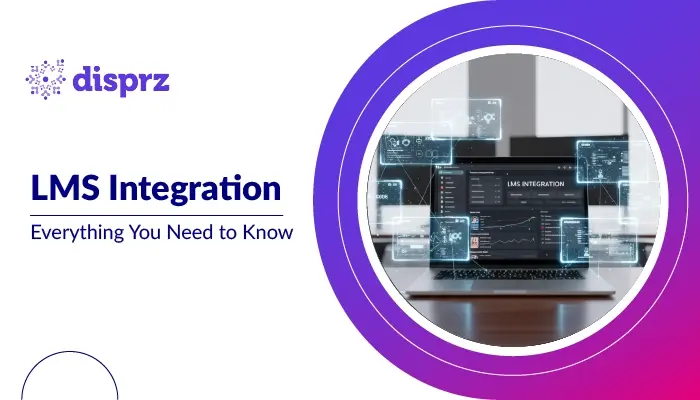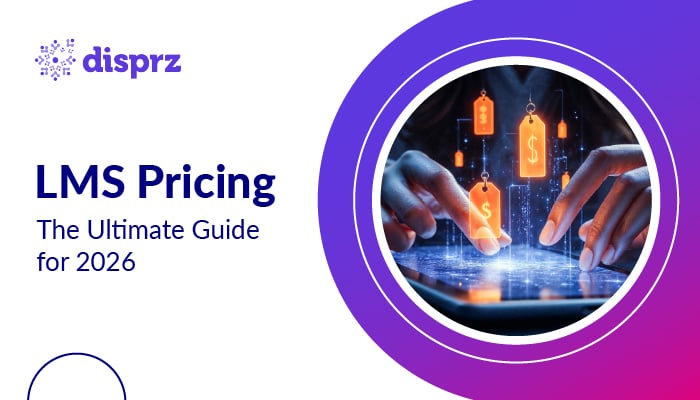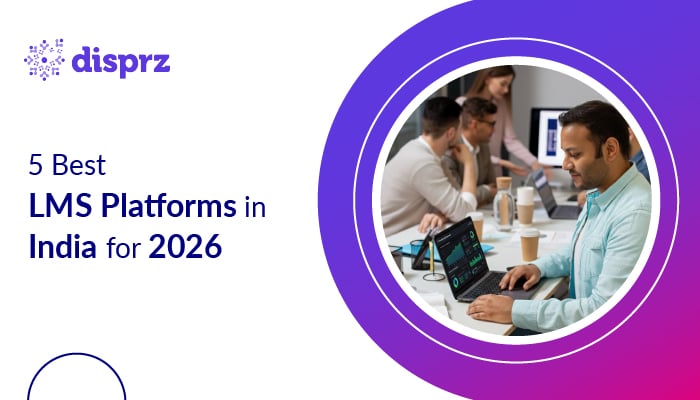Introduction: The 2025 Startup Training Challenge
The 2025 Startup Training Challenge is designed to address the growing need for scalable and adaptable training solutions tailored to the dynamic nature of startups. Research shows that high-performing learning organizations are 92% more likely to drive innovation, underscoring the importance of embracing cutting-edge employee development strategies.
This initiative focuses on equipping startups with flexible, impactful training programs that cater to diverse, fast-growing teams. By leveraging agile learning models, advanced technology, and customized content, startups can foster a culture of continuous learning, enhance team adaptability, and achieve sustainable growth in an increasingly competitive landscape.
Why Startups Need an LMS in 2025?
Learning Management System for startups is a strategic move to give new organizations a competitive edge from the beginning.
Here’s how an LMS for startups can drive growth and streamline operations:
Tracking and Automation
Embedding online training from the start enables startups to track employee progress via learning management system dashboard, offering rewards such as points and certificates to support development. Automation features streamline tasks such as course reminders, onboarding, and progress reports, minimizing manual effort.
Cost Efficiency
An LMS is a cost-effective training solution, that offers a favorable return on investment (ROI). By providing digital training modules, startups can cut costs tied to traditional training, such as venue and materials, while supporting a skilled workforce ready to meet business needs.
Knowledge Sharing
An LMS for startups enables employees to upskill and share knowledge, fostering team bonds and harnessing internal expertise. By creating an interactive space, startups can nurture content creators within the team who share valuable insights through blogs, videos, and social media content.
Onboarding Support
Automation in an LMS helps streamline onboarding by delivering key materials to new hires, from video welcomes to digital handbooks. This eases the workload on current employees and helps new team members integrate smoothly.
Two-Way Communication
An LMS also acts as a communication channel, enabling feedback, identifying skill gaps, and offering employee support resources, including mental health content, to foster a positive workplace culture.
Meeting Employee Expectations
Today’s workforce, often digital-native, expects dynamic, multimedia learning. With gamification, personalized learning paths, and microlearning options, an LMS makes training engaging and accessible to all.
Adaptability
Startups require agility, especially in training. An LMS offers quick insights into skill gaps and course progress, aiding targeted training and strategic planning with instant reporting for managers.
Key Benefits of LMS for Startups
The LMS benefits for startups are transformative, offering scalable and cost-effective training solutions that drive employee growth while aligning with business goals. By integrating an LMS, startups can efficiently onboard talent, foster continuous learning, and build a skilled workforce, which are key elements for achieving sustained success in a fast-paced environment.

Greater Flexibility
E-learning allows employees to access training anytime, anywhere, through a mobile device and internet connection. This flexibility helps employees progress at their own speed and minimizes scheduling conflicts, while also enabling customization for specific business needs.
Cost-Effectiveness
Unlike traditional training, eLearning eliminates the need for physical spaces and additional materials, lowering costs. This is especially beneficial for larger groups, where digital resources can be shared at no extra cost.
Faster Learning
Visual aids such as videos, charts, and infographics in eLearning shorten training time by making information easy to grasp. Employees retain concepts faster through multimedia formats compared to lengthy text-based materials.
Improved Retention
Employees are more likely to stay with organizations that invest in their development. LMS-supported learning not only engages staff in continuous improvement but also supports long-term loyalty by making training accessible and relevant.
Higher Efficiency
E-learning delivers consistent content to all employees without logistical hurdles. This streamlined approach maintains high efficiency, as training doesn’t require physical arrangements, and can be completed individually, boosting productivity.
5 LMS Trends for Startups in 2025
As the landscape of corporate training continues to evolve, startups must stay ahead by adopting innovative LMS trends.
Here are the top five trends expected to shape LMS strategies in 2025

1) Personalized Learning Experiences
Tailoring training programs to individual needs will become standard practice. Startups will utilize data analytics to assess employee skills and preferences, creating custom learning paths that enhance engagement and improve knowledge retention.
2) Microlearning
Short, focused training modules will rise in popularity, allowing employees to learn in small increments. This method caters to busy schedules and supports better information retention, delivering content effectively by breaking down complex topics.
3) Gamification
Incorporating game elements into LMS platforms will boost motivation and engagement. Features such as points, badges, and leaderboards will make learning more enjoyable and interactive, fostering a competitive spirit while encouraging collaboration among employees.
4) Integration of AI and Machine Learning
AI will play a key role in optimizing training delivery and management. Learning systems will adapt content based on user behavior, predicting skills gaps and offering relevant resources, streamlining the learning process for greater efficiency.
5) Focus on Soft Skills Development
Startups will prioritize soft skills training as essential for workplace success. LMS platforms will include modules for communication, teamwork, and problem-solving skills, nurturing these competencies to create a more adaptable and collaborative workforce.
How to Choose the Right LMS for Your Startup
Choosing the best LMS for startups requires more than simply selecting the most feature-packed system. An overly complex LMS can overwhelm users, while one that’s too basic may limit administrators and content creators.
Here are some practical steps to help you choose the most effective LMS for your startup’s unique needs.
Define Your Training Needs
Identifying your startup’s specific training goals is essential. Collaborate with your team to assess current training methods and pinpoint gaps. This helps ensure that the LMS will address both existing needs and future learning objectives, creating a system that feels “just right.”
Consider Your Audience
Understanding the demographics and digital comfort levels of your learners will guide your LMS choice. For a predominantly younger team, features such as gamification and social learning may enhance engagement. Alternatively, a simpler LMS with an intuitive user interface might be better suited for less tech-savvy learners.
Assess the Scale
The size of your workforce influences LMS scalability needs. If training is only for a small group, some systems with minimum learner requirements may not be ideal. Startups with growing teams should consider an LMS with flexible pricing and mass-user registration to accommodate future expansion.
Choose a Pricing Model
Different pricing options can meet various budgetary and usage needs. For stable learner numbers, pay-per-learner models work well, while pay-per-active-user is suited to occasional training. Options such as pay-as-you-go and license-based plans offer flexibility for startups unsure of long-term training demand.
Match LMS Features to Skill Levels
If your learners have diverse experience levels, look for an LMS that supports audience segmentation and adaptive learning paths. Placement tests can prevent learners from repeating content they already know, while strong tracking tools are ideal for uniform training programs such as compliance training.
Building a Learning-Driven Culture with LMS
For startups, an LMS is a cornerstone for cultivating a learning-driven culture that drives growth and agility. It empowers self-directed learning, giving employees access to resources at their convenience while centralizing knowledge for seamless onboarding and consistent upskilling. LMS analytics provide real-time feedback, enabling startups to refine training strategies and bridge skill gaps effectively.
Collaborative tools foster peer-to-peer learning, and continuous training modules ensure teams are prepared to tackle evolving challenges. By nurturing a culture of continuous learning, an LMS enhances adaptability and equips startup teams to excel in a competitive landscape.
Conclusion: LMS as a Startup Growth Tool in 2025
In 2025, leveraging an LMS will be indispensable for startups striving to remain agile and competitive. By streamlining training, enabling cost-effective upskilling, and cultivating a culture of continuous learning, a learning management system equips startups to build a future-ready workforce. It’s more than a tool. It’s a strategic investment that enhances team capabilities, boosts employee engagement, and improves retention, laying a strong foundation for sustainable growth and long-term success.








